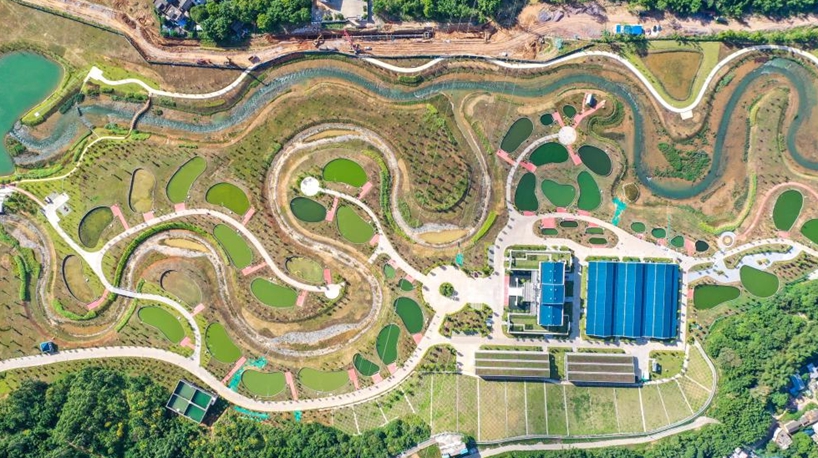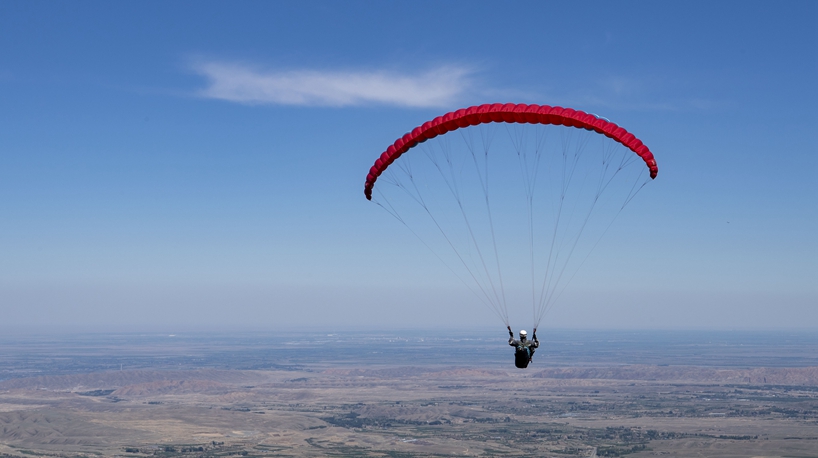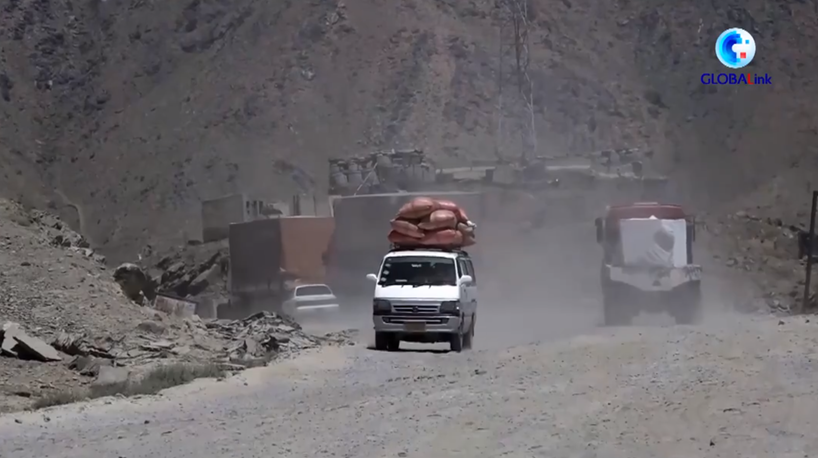
Aerial Photo taken on May 31, 2019 shows a race car running on the speedway at the northern foot of the Kunlun Mountains in northwest China's Xinjiang Uygur Autonomous Region. (Xinhua/Hu Huhu)
URUMQI, Aug. 18 (Xinhua) -- Researchers from the Chinese Academy of Sciences (CAS) and China's meteorological authorities have built a new meteorological station at an altitude of 5,200 meters in northwest China's Xinjiang Uygur Autonomous Region.
The station, which is the highest altitude meteorological station in the middle section of the Kunlun Mountains, can perform automatic data transmission based on the BeiDou satellites. Its successful launch is expected to fill the gap in meteorological observation data in the area, according to the Institute of Atmospheric Physics of the CAS.
The researchers established the station during their recent scientific expedition to the Kunlun Mountains aimed at studying climate change and the synergy of westerly winds and monsoon systems. Nearly 40 experts and scholars participated in the scientific expedition.
Despite extreme environmental conditions, the researchers installed weather detection equipment developed by China at the new station. The weather station is expected to provide valuable meteorological data for the study of weather phenomena of the high altitudes, climate change and unique precipitation characteristics of the Kunlun Mountains, with the help of ultraviolet radiation and low-temperature observation systems.
In recent years, the Qinghai-Tibet Plateau is getting significantly warmer and more humid, while the frequency of extreme weather in southern Xinjiang has also grown sharply. It is urgently needed to trace the energy evolution of water vapor related to the changes and to reveal the possible mechanisms behind these changes and their possible impacts, according to the researchers. ■












